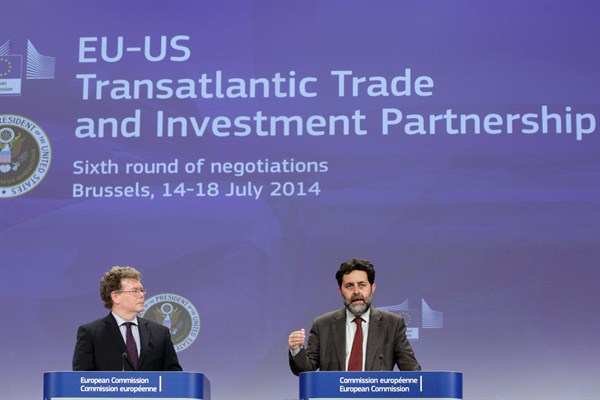Last month, Germany voiced concerns over the inclusion of an Investor-State Dispute Settlement (ISDS) in the free trade agreement between the European Union and Canada. German objections also call into question the inclusion of an ISDS in the trade deal currently being negotiated between the EU and the United States. In an email interview, Timothy Josling, senior fellow at the Freeman Spogli Institute for International Studies at Stanford University, discussed the settlements and their role in international trade agreements.
WPR: What is an Investor-State Dispute Settlement and how common is it in free trade agreements?
Timothy Josling: Investor-State Dispute Settlement clauses provide a foreign investor access to an international tribunal where the company, or person, can challenge the government of the host country for violation of an investment or trade agreement into which that government has entered. Such clauses are common in Bilateral Investment Treaties, of which there are over two thousand in existence. The incorporation of ISDS provisions in free trade agreements is becoming more common as the scope of FTAs becomes broader. NAFTA is one of the first examples of such an FTA with an ISDS clause. The U.S. considers that such clauses are necessary in the agreements now under negotiation, specifically the Transatlantic Trade and Investment Partnership (TTIP), between the U.S. and the EU, and the Trans-Pacific Partnership, between the U.S. and 11 Asia-Pacific nations. An ISDS provision in the Comprehensive Economic and Trade agreement between Canada and the EU has caused some controversy, both in its own right and as a possible model for the TTIP.

